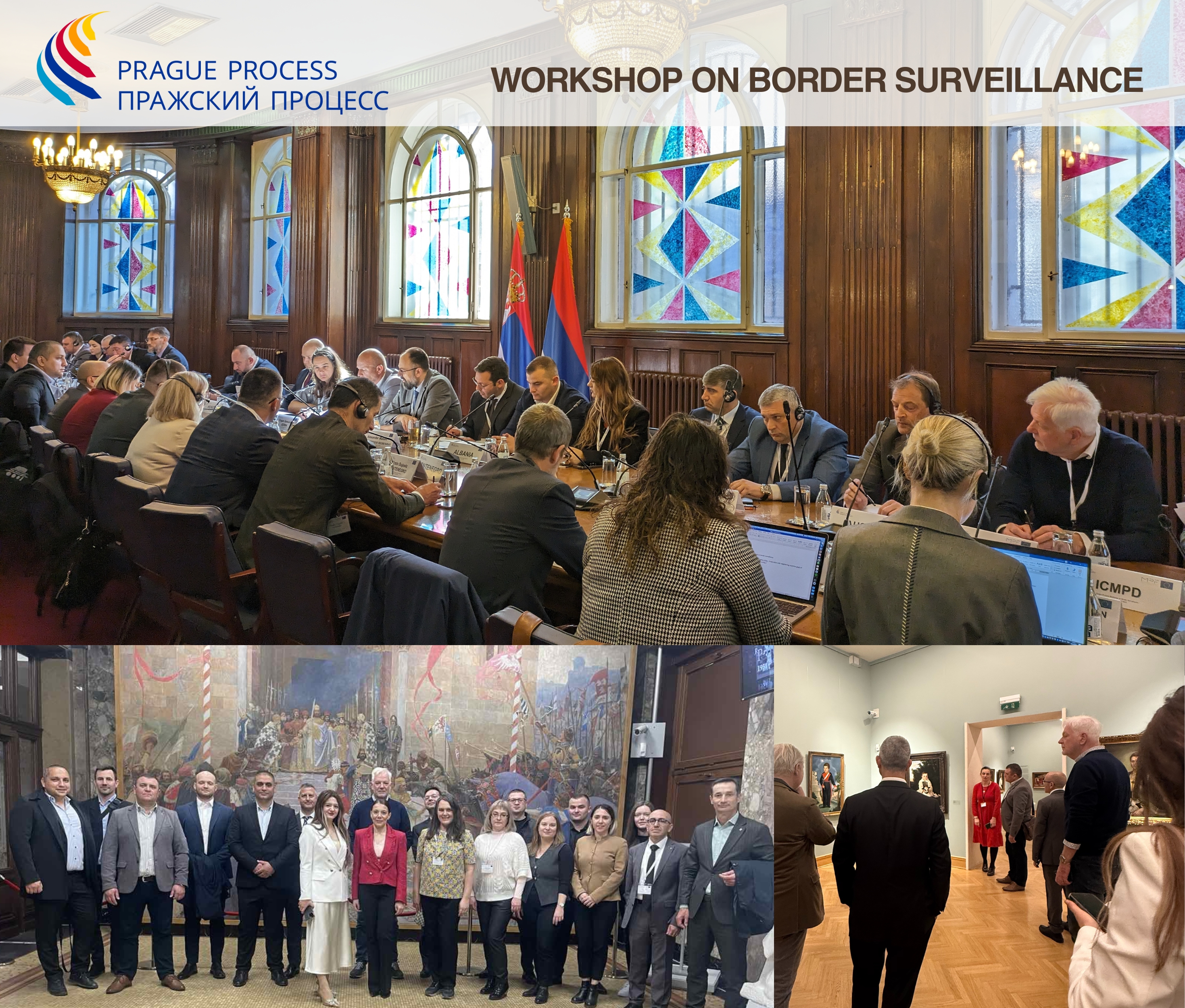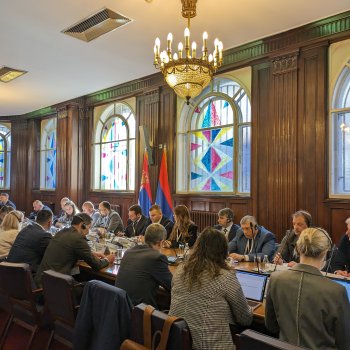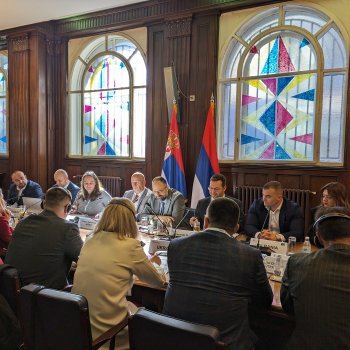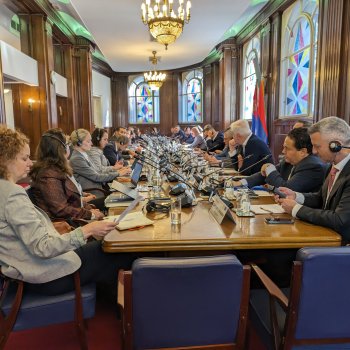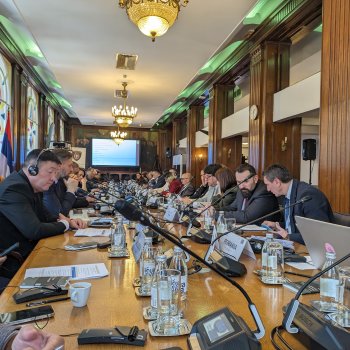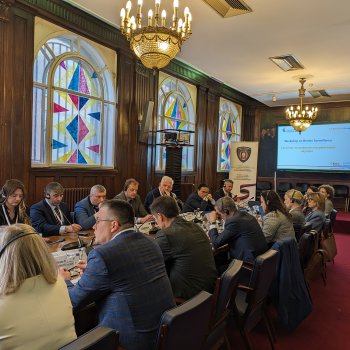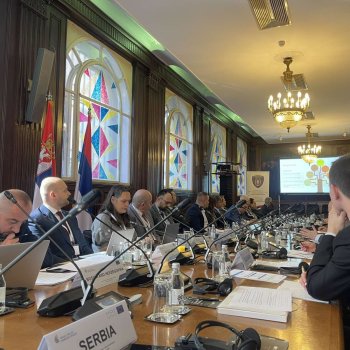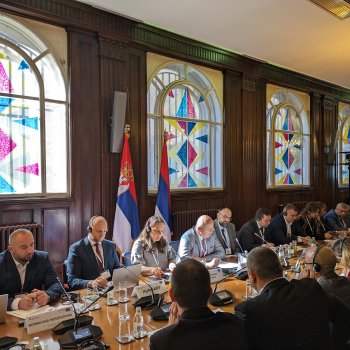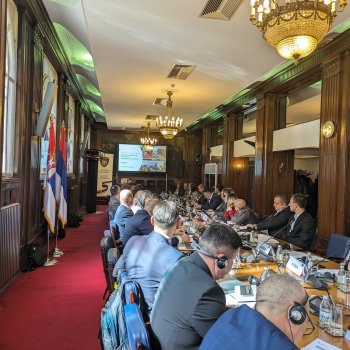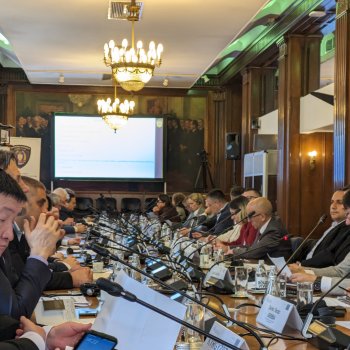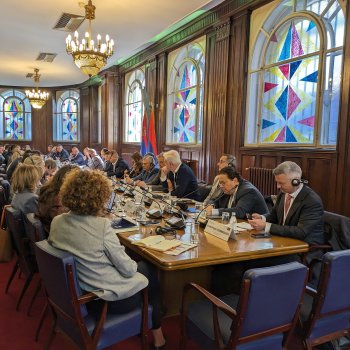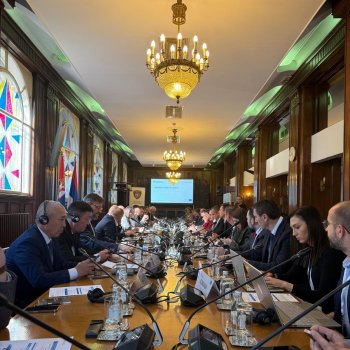Belgrade, 8–9 April 2025 – The Prague Process Workshop on Border Surveillance brought together representatives of the border authorities and management experts from 16 participating countries as well as representatives of the EC, EEAS, EUROPOL, JCP, UNHCR, UNODC, and ICMPD, to discuss best practices, challenges, and recent policy developments in border management and surveillance.
Hosted at the National Assembly of Serbia, the event served as a platform for sharing experiences and fostering cooperation on preventing irregular migration and combating migrant smuggling. The activity was organised within Thematic Component 1: Preventing and fighting irregular migration and migrant smuggling (TC 1) of the Prague Process Action Plan 2023-2027, co-led by Hungary and the Kyrgyz Republic.
Over the course of the two-day event, discussions focused on three key areas: border surveillance; the fight against migrant smuggling and trafficking in human beings; and recent EU policy developments, including preparations for the Pact on Migration and Asylum (hereinafter ‘the Pact’) and its potential implications. A key takeaway was the continuous need for dialogue, coordination, and cooperation among countries, EU institutions, and international organizations − bringing together the collective expertise of the border management community.
Participants discussed good practices and lessons learned in border surveillance and countering migrant smuggling and trafficking.
Experts on border surveillance and border management explored recent migration trends, technological advancements in border control, and effective and modern management strategies while also acknowledging the challenges posed by evolving migration dynamics. Participants shared some of the best practices and innovative approaches applied to prevent irregular migration and related illicit activities. The following were highlighted:
- Centralised planning and cross-border coordination have contributed to measurable improvements in operational readiness and a decrease in irregular migration.
- Integrated border management models that combine real-time intelligence, risk analysis, modern surveillance tools, and physical infrastructure were presented as effective responses to evolving migration challenges.
- Multi-agency and multi-institutional cooperation was noted as impactful tools for strengthening national response mechanisms in border surveillance operations.
- Holistic, route-based approaches to combatting trafficking in human beings, including digital tools and early identification practices, were highlighted as good models of protection-sensitive border governance.
Europol, UNODC, and national law enforcement representatives examined the latest threats and tactics used by criminal networks. Special attention was given to the impact of the war in Ukraine, with discussions on protecting vulnerable migrants and preventing their exploitation. Some of the persistent challenges and emerging threats in the migration management, smuggling and trafficking were discussed:
- The instrumentalization of migration and the use of misinformation by smuggling networks.
- Gaps in surveillance infrastructure, including system interoperability and the need for sustainable funding and technical maintenance.
- Challenges related to the return and readmission of irregular migrants.
- The increasing misuse of emerging technologies—such as drones—for smuggling purposes.
- The need for clarity and operational guidance in implementing evolving EU migration and asylum policies.
- Calls for broadening cooperation beyond the migration field to address wider geopolitical and security concerns.
Discussing the way forward within the TC 1, participants expressed strong interest in the implementation of the Pact and its implications for both EU and non-EU partners. The value of addressing the operational challenges faced by EU Member States under the Pact within the framework of the Prague Process was underlined.
The workshop reaffirmed the commitment of participating countries and partners to strengthening border security while upholding fundamental rights and ensuring the protection of vulnerable groups. The insights shared will support the development of more effective and evidence-based migration policies and foster practical cooperation across the region.

